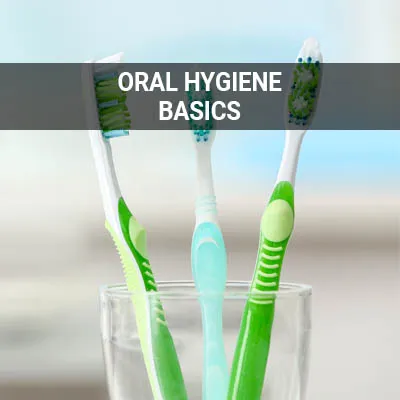How Proper Oral Hygiene May Improve Overall Health Chicago, IL
The state of your oral health is often a reflection of your overall health. Unfortunately, the oral health connection is typically not acknowledged by traditional dentists. A doctor of complete health dentistry can treat your general dental concerns while considering your overall health.
Complete health dentistry is available at Joyful Dental Care in Chicago and in the surrounding area. We want to help you be the healthiest you can be. Call us today at (773) 736-7767 to schedule an appointment or to learn more about our services.
The Oral Health Connection
According to WebMD, the mouth acts as an entryway to the digestive and respiratory tracts. It is a natural breeding ground for bacteria. Most of these are harmless and can be kept under control with proper oral health care and the body's natural defenses. However, without appropriate maintenance, disease-causing bacteria may accumulate over time.
Dental Health and Heart Health
It has been a long-established fact that there is a relationship between gum disease and heart disease. However, experts have yet to determine whether or not this is a causal relationship. In any case, existing research suggests that clogged arteries, heart disease, and stroke are associated with the inflammation and infections usually accompanied by dental bacteria.
Dental Health and Diabetes
Dental health and diabetes have a bidirectional relationship, meaning they both affect each other directly. Diabetes reduces the body's ability to resist infection, making patients more at risk of developing gum disease. At the same time, those with gum disease tend to have more difficulty controlling their blood sugar levels.
“According to WebMD, the mouth acts as an entryway to the digestive and respiratory tracts. It is a natural breeding ground for bacteria.”
Risk Factors for Poor Oral Health
Certain conditions may make a patient more susceptible to poor oral health — and, in turn, poor overall health. Some of the two most noticeable are pregnancy and osteoporosis. For both conditions, taking preventative measures is key. Making regular visits to a complete health dentistry doctor can catch problems before they happen.
Dental Health and Pregnancy
Pregnant women are at significantly higher risk for periodontal disease and cavities. These phenomena can occur due to changes in behavior, hormone levels, and diet. Furthermore, certain dental health issues may lead to pregnancy complications, such as premature birth.
Dental Health and Osteoporosis
Osteoporosis is a disease that causes the bones to become less dense and more brittle. It can affect any bone in the body, and research suggests an existing relationship between osteoporosis and bone loss in the jaw. Once the jawbone loses enough density, it is not uncommon for tooth loss to occur.
“Certain conditions may make a patient more susceptible to poor oral health — and, in turn, poor overall health.”
Lifestyle Choices and Oral Hygiene
Patients' dietary habits and lifestyle choices can also affect their dental health. Accordingly, neglecting to maintain one's oral hygiene will negatively affect one's overall health (and vice versa). As an example, one of the worst contributors to tooth decay and gum problems is excess sugar consumption. Particularly in its processed form, excess sugar consumption facilitates bacteria growth in the mouth.
Smoking is also a top contributing factor. Inhaled cigarette smoke is toxic, interferes with blood flow, and can potentially lead to oral cancer. Additionally, excess drinking will cause patients to have habitually dehydrated mouths, creating a breeding ground for bacteria. There also tends to be a correlation between those with alcoholism and poor oral hygiene habits.
Furthermore, changes in body weight may negatively affect denture fit. Loose fitting dentures may cause gums to suffer.
Some medications can also contribute to one's oral health, especially if they dry up saliva — as previously mentioned, dehydrated mouths are more prone to gum disease and tooth decay.
“Accordingly, neglecting to maintain one’s oral hygiene will inevitably negatively affect one’s overall health (and vice versa).”
Check out what others are saying about our dental services on Yelp: How Proper Oral Hygiene May Improve Overall Health in Chicago, IL
Dental Health and Other Conditions
Aside from heart disease, diabetes, pregnancy, and osteoporosis, there are many other conditions linked to dental health. These include but are not limited to pneumonia, rheumatoid arthritis, and Sjorgen's syndrome. Patients need to be as open and honest as possible with their complete health dentistry doctor, as certain conditions or even recent bouts of illness may affect the type of dental care they need.
In at least one study, poor oral hygiene was one of the leading risk factors for pneumonia in nursing home residents. Furthermore, rheumatoid arthritis and periodontal disease are both linked to severe inflammation. This may make patients more susceptible to Sjorgen's syndrome, which causes dryness of the mouth that causes difficulty eating and raises a patient's risk for tooth decay.
“Aside from heart disease, diabetes, pregnancy, and osteoporosis, there are many other conditions linked to dental health.”
Questions Answered on This Page
Q. How does dental health affect the rest of the body?
Q. How do pregnancy and osteoporosis put oral health at risk?
Q. How do lifestyle choices affect oral hygiene?
People Also Ask
Q. What is the importance of a healthy mouth baseline?
Q. What are some of the common dental conditions that occur during pregnancy?
Q. What are the effects of chronic oral inflammation on the rest of the body?
Q. Why is preventative care important? How can it save you money?
Maintaining Oral Hygiene at Home
Nothing can replace the expertise of a complete health dentistry doctor. Keeping regular appointments is crucial to maintaining oral health, especially since each patient requires personalized care. Luckily, there are many things patients can do on their own to take care of their teeth.
Patients should brush their teeth at least twice a day: once in the morning and once before bedtime. Germs and plaque accumulate throughout the day and should be removed whenever possible. It is essential to use proper technique while brushing and to remember to include the tongue. Using a fluoride toothpaste will also offer extra protection against tooth decay.
Flossing should be treated with the same importance as brushing, as it can help stimulate the gums while reducing plaque and inflammation. Those who have trouble using dental floss may want to look for alternatives, such as ready-to-use flossers. Swishing with a good quality mouthwash afterward also helps, as does drinking water, eating crunchy fruits and vegetables, and limiting sugary and acidic foods.
Frequently Asked Questions
Q. Can treating my gum disease alleviate the symptoms of my other conditions?
A. It depends on what those other conditions are. However, diabetes and rheumatoid arthritis have both been proven to have bidirectional relationships with oral health. In other words, treating one will effectively treat the other.
Q. Can rheumatoid arthritis cause any dental problems other than periodontal disease?
A. Yes. Rheumatoid arthritis can increase the risk of oral infections, both bacterial and fungal. Additionally, it may contribute to loss of motion in the temporomandibular joint.
Q. How is periodontal disease linked to chronic inflammation?
A. Periodontal disease is often caused by ongoing gum inflammation. When this happens, pockets eventually develop between the gums and teeth. These pockets fill with plaque, tartar, and bacteria, becoming deeper over time. Chronic inflammation elsewhere in the body can also strain the immune system.
Q. What are the risk factors for developing periodontal disease?
A. As we can see, some people are more susceptible to periodontal disease than others. Throughout this page, we have already mentioned diabetes, pregnancy, and osteoporosis. Lifestyle choices and oral hygiene habits may also contribute. For example, tobacco use, certain medications, poor nutrition, and clenching/grinding the teeth can heighten one's risk. Other risk factors are out of one's control, such as age, genetics, stress, or other systemic diseases.
Q. What causes gum disease?
A. Gum disease usually starts off with a buildup of excess plaque which, if left undisturbed, eventually turns to tartar under the gumline. It will then develop into a mild form of gum disease known as gingivitis before later progressing into periodontitis, a more severe form of the disease.
Dental Terminology
Call Us Today
Our team at Joyful Dental Care may be able to help. Call us today at 773-736-7767 to schedule an appointment or to learn more about our services.
Helpful Related Links
- American Dental Association (ADA). Glossary of Dental Clinical Terms. 2023
About our business and website security
- Joyful Dental Care was established in 2006.
- We accept the following payment methods: Cash, Check, MasterCard, and Visa
- We serve patients from the following counties: Cook County
- We serve patients from the following cities: Chicago
- National Provider Identifier Database (1407927916 ). View NPI Registry Information
- Norton Safe Web. View Details
- Trend Micro Site Safety Center. View Details
Back to top of How Proper Oral Hygiene May Improve Overall Health
QR code for How Proper Oral Hygiene May Improve Overall Health











